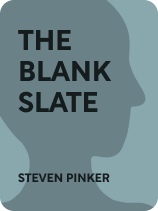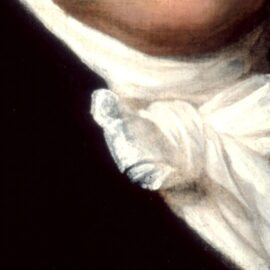

This article is an excerpt from the Shortform book guide to "The Blank Slate" by Steven Pinker. Shortform has the world's best summaries and analyses of books you should be reading.
Like this article? Sign up for a free trial here.
Are humans inherently selfish and corruptible? How does our view of human nature shape our political beliefs?
Steven Pinker’s The Blank Slate explores the age-old debate of conservatism vs. progressivism through the lens of human nature. He argues that traditional conservative views align more closely with scientific findings about our inherent traits and tendencies.
Continue reading to discover how Pinker’s insights challenge long-held assumptions and potentially reshape our understanding of political ideologies.
Conservatism vs. Progressivism
Pinker contends that his account of human nature helps us assess the foundations of conservative and progressive political thought. In the ongoing debate of conservatism vs. progressivism, he argues that his account of human nature shows that conservatism rests on a stronger foundation than progressivism, as conservatives have traditionally assumed that humans are inherently selfish and corruptible.
For context, Pinker explains that secular conservatives such as Edmund Burke have traditionally accepted the view that humans lack understanding and morality. Consequently, they prefer preserving current social traditions because they believe it’s difficult to find new social structures that can accommodate humans’ inherent selfishness and ignorance. For example, consider the tradition of the US’s electoral college, which elects the President via state delegates whose numbers aren’t perfectly proportional to state populations. Even if this was a suboptimal system, Burke might encourage retaining it because any replacement could be worse.
(Shortform note: Burke is perhaps best known for his reflections on the French Revolution, in which radical revolutionaries executed the French king and queen along with thousands of others during the Reign of Terror. According to Burke, this revolution illustrated humans’ ignorance (specifically ignorance about the concept of liberty) and their disregard for time-tested social structures that ensured a stable, moral society. In other words, Burke believed the revolution showcased the pitfalls of trying to overthrow existing societal structures. He concluded that we should be wary of radically changing society since the consequences can be worse than current societal flaws.)
Pinker points out that, by contrast, progressives like Rousseau have historically accepted that humans are malleable and any limits to our knowledge and morality come from flawed social structures. For this reason, progressives are quick to upend existing social conditions that they think are less than ideal.
| Progressive Ideals in the Prison Abolition Movement One particularly clear manifestation of this progressive approach is the police and prison abolition movement. According to this movement’s advocates, crime arises when society isn’t meeting the needs of its citizens—for example, by having an insufficient social safety net. So they contend that both police and prisons would be unnecessary in a society that properly supports its citizens. Some critiques of this movement mirror a common critique of Rousseau’s ideas: that sweeping reforms can lead to unintended, negative consequences. For instance, historian Simon Schama analyzes how Rousseau’s ideas influenced the French Revolution, arguing that the revolution resulted in violence and authoritarianism rather than a utopian society. Similarly, some critics of the prison abolition movement argue that its fixation on the radical solution of abolishing prisons could scare off potential supporters who’d otherwise be in favor of decarceration efforts. |
According to Pinker, it’s clear that the view of human nature that traditional conservatives accept is more accurate—for example, science has shown that humans are prone to conflict and have inherently fallible consciences, just as the conservative view assumes. The progressive view, on the other hand, accepts doctrines similar to empiricism and romanticism, which Pinker already argued are misguided.

———End of Preview———
Like what you just read? Read the rest of the world's best book summary and analysis of Steven Pinker's "The Blank Slate" at Shortform.
Here's what you'll find in our full The Blank Slate summary:
- Why the view that humans are a blank slate is wrong
- Why humans have an innate tendency toward conflict
- How children’s personalities are inherited from their parents






